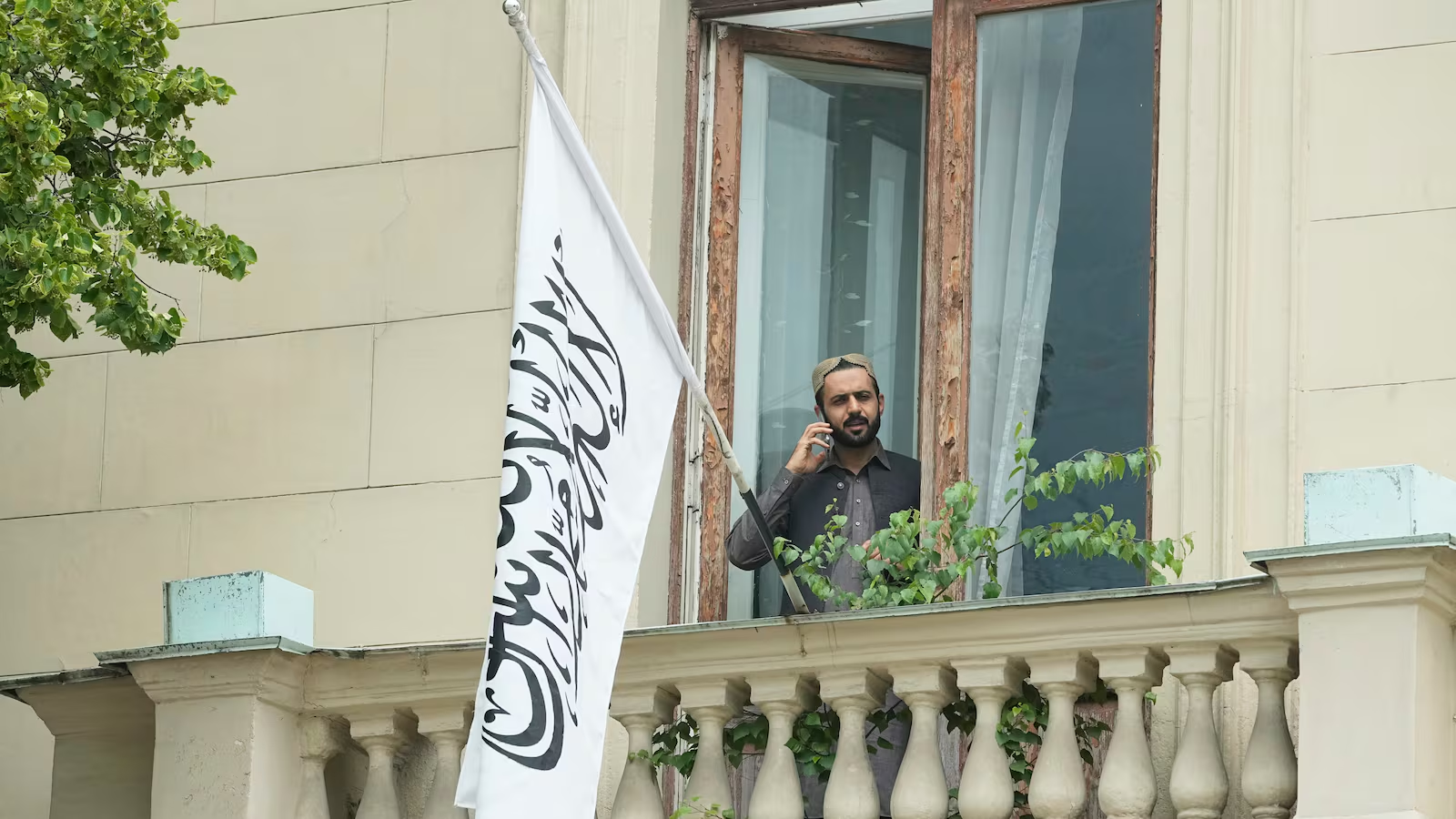In today’s hardened geopolitical climate, human rights, women’s rights, and other civil liberties take a back seat to strategic interests. Having a country and a government on your side—no matter how evil or draconian—can be a powerful advantage, especially when that regime controls an area bridging the Middle East and Asia. So, who can afford to say no? Certainly not Russia.
Russia has become the first country to officially recognize the Taliban’s Islamic Emirate in Afghanistan. The announcement followed a meeting in Kabul between Afghanistan’s foreign minister, Amir Khan Muttaqi, and Russian ambassador Dmitry Zhirnov. The Taliban hailed the move as the start of a new chapter and expressed hope that other nations would soon follow Russia’s lead. For a regime long in search of international recognition, Moscow’s endorsement marks a major step forward.
Expected, but a little late
At first glance, Russia’s recognition of the Taliban may seem surprising, given that Moscow never supported the group even during its previous rule in Afghanistan from 1996 to 2001. The Taliban originally emerged as a force backed by the U.S. and Pakistan to counter Soviet influence, putting them historically at odds with Russia. However, it became clear after the Taliban’s takeover of Kabul in 2021 that Russia was becoming one of the group’s closest allies. Though it is the same organization enforcing strict interpretation of Sharia law, it now shows a greater willingness to engage with non-Islamic nations.
Unlike most countries, Russia maintained its embassy in Kabul throughout the Taliban’s return, preserving its diplomatic presence even without formal recognition of the regime. Since then, Moscow has steadily moved toward normalization. In April 2024, it officially removed the Taliban from its list of terrorist organizations and began hosting their representatives at official events. Russia also became the first country to open a business representative office in Kabul after the Taliban’s takeover and announced plans to use Afghanistan as a key transit route for gas exports to Southeast Asia. In July 2024, President Vladimir Putin went further still, referring to the Taliban as “Allies in the fight against terrorism.”
Recognition had long been anticipated—delayed, but not denied. As global concern over human rights continues to fade and the Taliban becomes less of a global talking point, Russia has extended formal recognition.
Russia’s interest in the Taliban?
Russia, much like its predecessor Soviet Union, has long understood Afghanistan’s strategic value—as both a gateway to the Indian Subcontinent and a vital corridor to the Indian Ocean. A stable relationship with Afghanistan offers Russia the potential to establish trade and energy routes linking it to South Asia, particularly India, through pipelines and transport infrastructure. While one existing route passes through Iran, the Afghan corridor presents even greater strategic and logistical advantages.
Economic cooperation with India and Pakistan through this corridor could deliver significant benefits for Moscow. The United States attempts to rebuild ties with Pakistan should be seen in this strategic context, which can disrupt this route. Politically, a close relationship with the Taliban enables Russia to strengthen its influence over Central Asian partners, and draw India further into its orbit through expanded land connectivity. At the very least, a cooperative Afghanistan could serve as a neutral buffer, reinforcing regional stability in Russia’s favor.
Russia Moves First—Who’s Next?
As Russia recognizes the Taliban, it is likely that its satellite states—such as Belarus and several Central Asian countries—will follow suit. Others, including China, Pakistan, and even India, may also reassess their positions. Signs of broader engagement are already evident. China continues to operate its embassy in Kabul, and high-level meetings have taken place between the two governments. Iran also maintains diplomatic relations and has kept its embassy open. Pakistan, despite ongoing tensions fueled by cross-border extremist violence, has long held close ties with Afghanistan. Qatar, meanwhile, plays the role of mediator between the Taliban and Western nations may soon recognize. However, the Taliban’s severe restrictions on women and girls—barring them from education and excluding them from public life—remain a major obstacle to wider international recognition, particularly among Western democracies.








